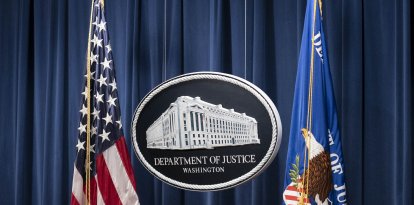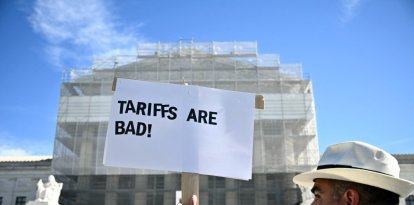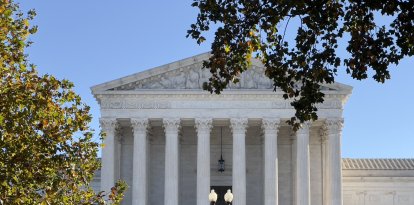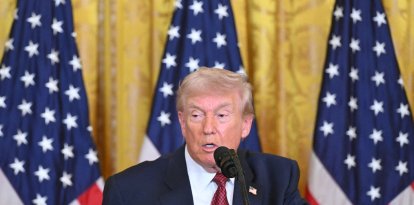The 14th Amendment, the latest legal maneuver to block Trump's candidacy
A lawyer asked the courts to prohibit the former president from holding public office due to the events of Jan. 6 and the two court cases accusing him of trying to reverse the 2020 elections. Some experts argue that it would be enough for an electoral official to disqualify him.

Donald Trump / Cordon Press.
Talks of using the 14th Amendment of the Constitution against Donald Trump materialized late last week in an action filed in federal court in Florida. Lawrence Caplan, a Palm Beach-based attorney, asked the court to ban the former president's participation in the Republican primary and general election.
Caplan adheres to the third section of the amendment, which states that anyone who has taken an oath to the Constitution may not return to public office if he participated in an "insurrection or rebellion" or provided "aid or comfort to enemies" of the United States.
The amendment also clarifies that the disqualification may be reversed if ratified by two-thirds of each chamber of Congress. In the words of the amendment itself:
The Florida lawyer argued that the storming of the Capitol and the two cases against Trump in Georgia and Washington, D.C., for allegedly trying to reverse the election should automatically make him ineligible.
"The bottom line here is that President Trump both engaged in an insurrection and also gave aid and comfort to other individuals who were engaging in such actions, within the clear meaning of those terms as defined in Section Three of the 14th Amendment," Caplan wrote in the complaint.
Lawrence Caplan - Voz Media... by Santiago Adolfo Ospital
Caplan spoke about the unprecedented nature of his claim in an interview with The Hill, opining that it was justified because the United States had never suffered an attack similar to that of Jan. 6. He also said the following about the former Republican president:
Experts are divided
"If Donald Trump were to be reelected, how could any citizen trust that he would uphold the oath of office he would take upon his inauguration?" asked former Justice John Michael Luttig and Professor Laurence Henry Tribe in an article that inspired Caplan to file his complaint.
Luttig and Tribe assured that the disqualification would take effect immediately, without any need for judicial process, conviction, impeachment or congressional legislation. It would require a "responsible election officer" to disqualify Trump. The case, then, would surely reach the Supreme Court, which due to the importance of the matter, should decide quickly.
Although the 14th Amendment was written to prohibit Confederates from participating in the state or federal government, the authors opined that Section Three "is no anachronism or relic from the past."
"Despite its long slumber, Section Three of the Fourteenth Amendment is alive and in force," agreed law professors William Baude of the University of Chicago and Michael Stokes Paulsen of the University of St. Thomas School of Law—who in turn inspired Luttig and Tribe's paper—in an academic paper.
Instead, law professor emeritus Alan Dershowitz opposed the measure: "It would put the decision about who the President is in the hands of local Secretaries of State and Democratic governors, instead of in the hands of the people." During a conversation with Just The News, he also warned that this was the most serious threat to Trump because "it doesn't even require a conviction for some secretaries of state to take them off the ballot."
"It is something the Marxist left has been pushing for years against Trump," wrote lawyer Mark R. Levin, who also described the article by Luttig and Tribe as a "self-humiliating piece":
"The clause Democrats are citing was created in reference to a real Civil War in which over 750,000 people died in combat. The confederacy formed a government, an army, a currency, and carried out diplomatic missions," explained legal scholar Jonathan Turley when the North Carolina board of elections relied on the same constitutional section to bar Madison Cawthorn from running for election in 2022 because of her role on Jan. 6. The events of that day, he argued then, had not been legally regarded as an insurrection or rebellion. In addition:

























